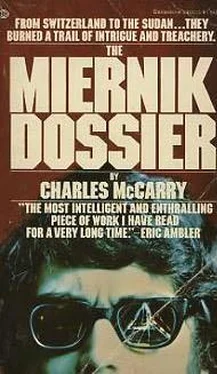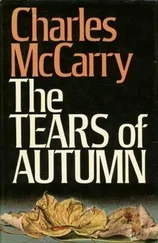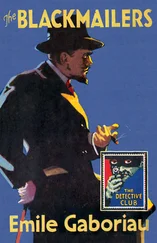Night comes very quickly in the desert, as you’ve no doubt heard, but Kalash seems to know exactly when this is going to happen. He stopped near a place called Soukari (before we got to the town: “If the Egyptians don’t know we’re here they won’t come creeping out to steal our shoes”) and we made camp about an hour before the sun disappeared. Kalash has barred all alcohol while we are in the desert, but he has laid in a huge supply of oranges, lemons, and limes. Zofia squeezed some of the fruit and made drinks with the last of the ice from the Hilton. Kalash fished the ice cubes out of his tin cup and threw them into the sand. “You’ll be less thirsty if you learn to drink tepid fluids,” he said. He issued warnings about deadly six-inch scorpions and imparted other desert lore. He is dressed as a sheik for the trip, and his warnings, issuing out of a white headdress, are very believable.
We dined on canned goods heated by Ilona on an alcohol stove and afterward sat around in the light of a gasoline lantern, listening to Zofia’s guitar. She was well taught by Sasha Kirnov-she can play almost any tune after it’s hummed to her. Ilona knows a great many Russian songs, learned from her grandfather. The language suits her well; she looked wild and melancholy in the lamplight with her black hair falling over her breasts. Her hair was the color of the night behind her, so her white face seemed suspended in air, like the face of a girl in a dream. Miernik was hypnotized. So were we all.
It grew very cold shortly after nightfall, and we put on jackets. There were three small tents, each big enough for two persons. The girls decided to share one of these, and Miernik and Collins paired off in another-they want to keep an eye on each other because of Ilona, I suppose. Kalash, after the guitar had been put away, walked beyond the edge of the lamplight and lay down on the ground, drawing an end of his costume across his face. That left me alone in the third tent.
I couldn’t sleep, but it was too cold to get up, so I lay on my stomach in the sleeping bag, looking out at the stars through the open flap of the tent. Kalash was an unmoving white shape a few feet away. At about midnight I heard a slithering sound next door, and then I saw Miernik sliding out of the mouth of his tent. He stood upright, looked around, and then walked straight for the Cadillac. He opened the door softly and the interior light went on briefly. There was a pause before light showed again, this time in thin streaks around the edges of the window shades. There are blinds on all the windows. Of course there is no way to cover the windshield, but the car was pointed away from camp, so the pool of light on its hood was unlikely to disturb anyone.
I got up and put on my boots. Kalash, still not moving a muscle, said, “What is that imbecile doing in the car at this time of night?”
“I’ll ask him,” I said. “Maybe his wounds are bothering him.” (Miernik has removed his sling, but he still moves rather stiffly.)
Kalash said nothing more, and I assumed he went back to sleep at once. I walked to the car and looked in through the windshield. Miernik was sitting in the back seat with his thick Mont Blanc fountain pen in one hand and a smallish book in the other. He turned the pages of the book, ran his finger down the edge of the page, counted the lines to the point where his finger stopped, and then wrote a number on a sheet of paper. Then he repeated the process.
I guess I don’t have to tell you folks that he was writing a message, using a book code. I moved back out of the light but kept watching. Miernik was absorbed in his work. He went at it rapidly, with none of the fussiness and hesitation he usually displays. He’d find a word, note the number of its line on the pages, and enter it with the page number in a five-digit group. Judging by the place at which he’d opened the book, he was using three-digit pages. Therefore the first three digits are the page number and the last two the line number. I suppose he uses the first word on the line cited. The book had a gray cover with red lettering.
After five minutes or so, I started back to my tent. “What is he doing?” Kalash asked from the floor of the desert.
“He’s reading,” I replied.
Miernik came creeping back about ten minutes later. Kalash did not speak to him, and I was glad I didn’t have to. Catching him red-handed bothered me less than I might have expected. There is a certain satisfaction in being a successful Peeping Tom; otherwise no one would do this sort of work. But Miernik’s damn foolishness annoyed me. Why did he choose this time and this place to mess around with a book code? Where would he get rid of it? Not even the Soviets use natives with cleft sticks as moving dead-drops, and in the desert Miernik would certainly find no other way to get rid of his clandestine message. It would be typical of the man to entrust it to the Egyptian mails in the next small town we come to. The whole scene-sneaking out to the car at night, pulling down the shades, scribbling away in circumstances that offered a 99 percent chance for detection-was so amateurish. It made me angry that Miernik could be such a fool.
3 July. Two things to record in connection with the events of last night:
1. Miernik’s book is Tocqueville’s Democracy in America, World’s Classics edition No. 496 (Oxford University Press, 1959). He left it lying on his sleeping bag when he came out for breakfast.
2. This morning, in Marsa Alam, he did mail a letter at the post office.
59. DECODED VERSION OF MIERNIK’S MESSAGE. [6]
JOURNEY IN FINAL STAGE. MUCH TROUBLED YOUR FAILURE COMMUNICATE, GREATLY HOPE THIS MEANS NO CHANGE IN PLANS OR DIMINUTION HOPES FOR SUCCESS. COMPANIONS AMIABLE. HAVE ADDED ENGLISH GIRL (B)ALTIMORE (E)XCELLENCE (N)OWHERE (T)RIUMPHANT (L)OVE (E)XCELLENCE (Y)OUNG. EXPECT REACH DESTINATION TWELFTH OR THEREABOUTS. MONEY GIVEN COURIER VERY GENEROUS. HER PAPERS SUPERB. MY HOPE IS FOR SAME AFTER PRESENT VENTURE. TRUSTING FRIENDS TO PROVIDE AS FINAL FAVOR. NEXT MESSAGE FROM CAPITAL OF DESTINATION COUNTRY. AFTER THAT SILENCE UNTIL WE MEET AGAIN.
60. REPORT BY A POLISH NATIONAL CONTROLLED BY A WESTERN INTELLIGENCE SERVICE (EXCERPT).
… Colonel Puszinsky of the Intelligence Service reported to the deputy foreign minister on 26 June that the requirements laid down for a joint Polish-Soviet operation in Africa had been fulfilled. The deputy foreign minister declined to be told full details of the operation and asked for an outline report only. Colonel Puszinsky assured him that a suitable Polish citizen, trained in intelligence work, had been assigned as a liaison between the Soviet Embassy in an East African country and an organization of freedom fighters in a different but neighboring country. The agent was en route to his assignment and on arrival would fall under control of the responsible Soviet officials. An official expression of gratitude on the part of the Soviets had been received by Colonel Puszinsky for communication to the deputy foreign minister.
61. DISPATCH FROM THE AMERICAN STATION IN VIENNA (EXCERPT).
In the hope of allaying Geneva’s anxiety over the apparent confusion surrounding Christopher’s border-crossing operation, we have conducted a full debriefing of the Czech officer in command of Point Zebra. He states that the crossing by Christopher and Zofia Miernik was authorized by the Czech counterintelligence arm. The Czech CI officer who made the authorization was accompanied by a Russian known to our source as “Major Shigalov.” Our source believes that Shigalov is an officer of the KGB. It was Shigalov who instructed our source to create a diversion and permit the crossing by Christopher and the Miernik woman. There were no instructions to hold fire if Christopher and Zofia Miernik were discovered by the troops. Chances of that happening were regarded as minimal by Shigalov. Our source assumes that the crossing was a KGB operation designed to infiltrate personnel into the West with the credibility that accrues from a hazardous escape across the frontier. He has taken part in a number of other episodes that followed a similar operational script. We tend to agree with his judgment, assuming that his version of events is accurate. He has in the past been highly reliable.
Читать дальше












